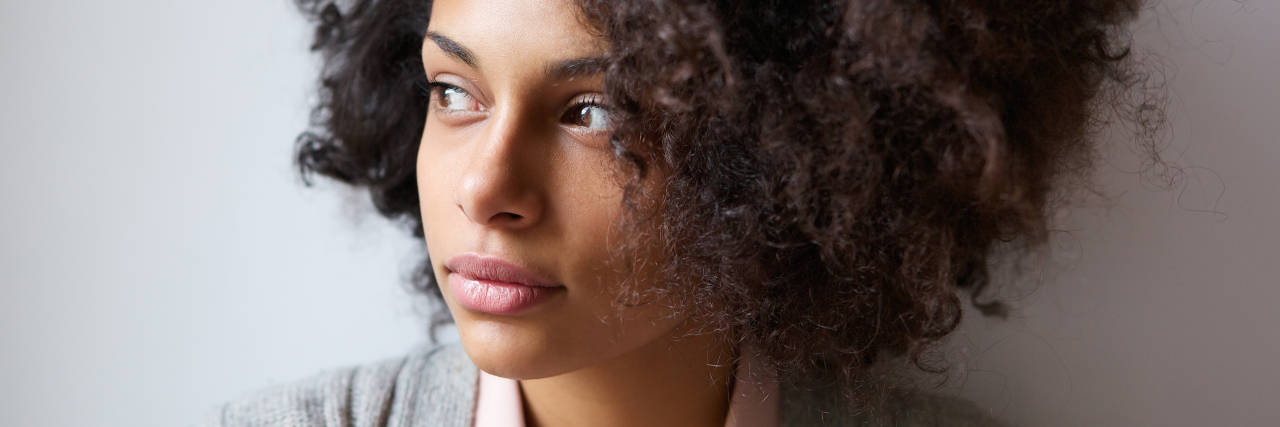Editor’s note: The following is based on an individual’s experience and shouldn’t be taken as medical advice. Please consult your doctor before going on or off medication.
What would you do if your only choices were no treatment for your rare disease, or a treatment that had serious adverse side effects that could be life-threatening? What would you consider in making your decision?
Every other week I receive an infusion of a drug called alglucosidase alfa. I need this drug to slow the progression of my disease, which includes muscle wasting, respiratory failure and cardiac arrest. However, some of the possible side effects of alglucosidase alfa include severe allergic (anaphylactic) and hypersensitive reactions during and up to three hours after the infusion. Severe skin-related (cutaneous) and other immune system-related reactions can also occur within several weeks to three years after starting treatment with alglucosidase alfa. In children receiving treatment with alglucosidase alfa, there is also a risk of acute cardiorespiratory failure, particularly if the child is already experiencing heart or breathing problems.
What would you choose?
This is a choice all Pompe patients are faced with as well as the 5 percent of rare disease patients who are lucky enough to have treatment for their disease.
I began receiving treatment with alglucosidase alfa on November 10, 2015. In the two years I have been receiving treatment, I have had two major reactions. The first being on Valentine’s Day of this year and the second being a few days ago. On Valentine’s Day I began having chest pains and trouble breathing. The nurse conducted an EKG and checked my troponin levels. The EKG was abnormal and my troponin levels were very high. As a result, the cardiologist on call ordered an emergency angiogram and I was admitted to the hospital. Fortunately, everything turned out for the best and according to the cardiologist my heart is beautiful.
The recent reaction was very similar, but I also felt like my throat was closing up and that my tongue was swelling up. Again, the nurses sprang into action and stopped my infusion. My doctor was called and he later came down to see me. The infusion was started and stopped three times and took eight hours to administer (it usually takes four hours); ultimately I was not able to receive the whole infusion.
Before I began treatment two years ago my doctors educated me regarding the various side effects so I could make an informed decision. I chose to receive treatment. I discussed my decision with my husband and other family members. I considered how my quality of life would be affected with and without treatment. I considered how long I would live with and without treatment, and I thought about spending time with my family, and how having treatment would allow me to have more quality time with them. But I know several Pompe patients who are unable to receive treatment because they have had severe adverse reactions to alglucosidase alfa. I also know Pompe patients who have been hospitalized during treatments and stay overnight for observation. There are also many Pompe patients who experience minimal to no side effects, and most of the time I am one of those patients.
With the recent tax bill and the possibility of the Orphan Drug Tax Credit being eliminated or significantly reduced, this topic of treatment and research has been heavy on my mind. According to The National Organization for Rare Disorders (NORD), 95 percent of rare diseases don’t have a treatment, and if the Orphan Drug Tax Credit is eliminated or significantly reduced, that could result in fewer orphan therapies being developed each year. This means less funding for research which means more rare disease patients waiting for treatments. It also means that patients who have a treatment available to them but can’t receive it safely because of the adverse side effects are also waiting.
I am fortunate I can receive alglucosidase alfa relatively safely; however, my doctor has informed me there is a possibility I may develop antibodies to the drug which could make it less safe or not possible to continue with treatment. Right now that is one of my biggest fears – to have a lifesaving drug within reach and not be able to grab it. This is a reality many rare disease patients face every day.
Rare disease patients don’t have the luxury of choice when it comes to taking medication and receiving a treatment that will slow the progression of their disease. What would you choose?
We want to hear your story. Become a Mighty contributor here.
Photo via m-imagephotography on Getty Images

